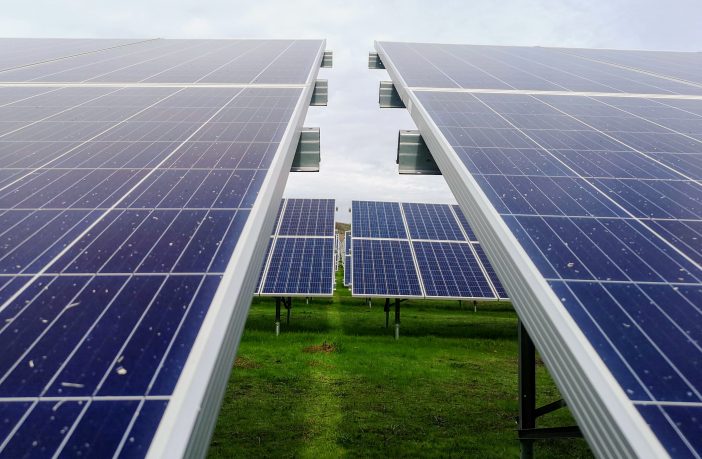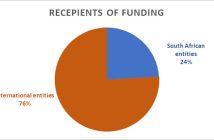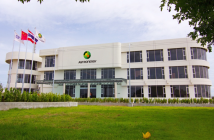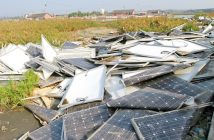Experts will be weighing in on the financial models needed for the African energy sector to stay relevant in a changing market at the African Utility Week and POWERGEN Africa conference.
“Honestly, I think the business model for energy investment needs to change,” says Penny Herbst, Director Strategy for Africa GreenCo.
“There are far too many players that are comfortable with the same structures for investment, selling to an SOE (state-owned enterprise) with a government guarantee. What we really need at present is for investors to have a stake where their influence contributes to improving the Electricity Supply Industry (ESI) as a whole. Both current investors familiar with the South African environment and those that wish to enter the market for the first time are awaiting the release of the revised IRP for their next move.”
She explains that Africa GreenCo has an innovative business model “where it will function as an intermediary buyer and seller of power from IPPs and in this role will aggregate financial and supply risks in a portfolio approach by, amongst others, using local and regional markets to transparently diversify its risks.”
Municipalities part of ESI
With regards to the role of municipalities, Ms Herbst, who is a former Eskom employee and 30-year veteran of the energy industry, says: “the municipalities are as much a part of the ESI as Eskom and as a matter of fact, in most large metros they add a margin in excess of 100% to Eskom’s tariff e.g. Eskom charges the municipalities approximately ZAR 1 / Wh and they in turn charge ZAR 2+ / kWh to their customers. This is exorbitant and to make matters worse the charges associated with pre-paid exceed those of post-paid. Surely pre-paid customers are a better credit quality than those that are being billed in arrears. The question to be raised here is who is benefitting from pre-paid meters, if it is the private sector, is their remuneration commensurate with their risk?”
She adds: “what is clear though is that there is a myriad of players lying in wait to capitalise on the gap that has been created by the unfolding Eskom financial and reliability challenge. Can we as a country honestly say that the planning and pricing impact for this has been fully comprehended?“
Ms Herbst will moderate a conference session on “Financing renewable energy projects” at the upcoming African Utility Week and POWERGEN Africa in Cape Town from 14-16 May. Click here to read her full interview: An electricity sector in turmoil – Unpacking what transpired.
Educating investors on risk
“We are seeing greater interest from international investors than we have in the past,” says Romain Py, Investment Director – Head of Transactions, African Infrastructure Investment Managers Pty Ltd (AIIM). “It is, however, important to note that the African private equity industry is still at an early stage of development relative to the traditional markets. As a result, the key focus for the industry needs to be on educating investors, notably on how to manage risks, and the large gap between perceived risks and actual residual risks for deals.”
AIIM is a shareholder in the Albatros Energy Mali project which won Project of the Year at the African Utility Week Industry Awards last year. Albatros Energy Mali, an HFO thermal power station, is Mali’s first independent power producer (IPP) project.
Py adds: “There is also a need to educate governments on the requirements for increased private sector participation and consistency of policies and regulation. Reforms have been enacted in some countries in order to encourage Africa-based institutional investors to allocate capital to the asset class. However, more remains to be done to fully harness private equity’s potential to contribute to Africa’s socio-economic development.” For Romain Py’s full interview click here.
This year’s African Utility Week and POWERGEN Africa dedicate a full three-day conference track to investment and finance in the energy sector. AIIM’s Romain Py is part of a panel discussion on: “What impact will the financial and investment landscape for 2019 have on Africa’s power infrastructure?”
Mini grids, deregulation
“Deregulation would open a market for people to produce power and sell power and that would revolutionise the energy landscape in South Africa. Technically it wouldn’t be a difficult or complex thing to do; there are plenty of precedents around the world where it has worked really well” – this is according to says Dr Sam Duby, Africa Director for TFE Energy and mini grid expert.
He continues: “creating a market for independently produced energy would also very quickly incentivise and unlock investment into the space. As more projects were built and generation capacity added, you would also very quickly get more system resilience. Blackouts really could be a thing of the past.“
At African Utility Week and POWERGEN Africa in May, Dr Duby will address the Energy Revolution Africa conference session on the latest developments and long-awaited cooperation in the African micro grid industry. See more from Dr Duby here.
The 19th edition of this leading conference and exhibition is expected to attract more than 10 000 energy and water professionals this year.
you can catch this discussion and more at African Utility Week and POWERGEN Africa taking place at CTICC, Cape Town, South Africa on 14-16 May 2019.
REGISTER TO ATTEND HERE (entry to the exhibition is free)












